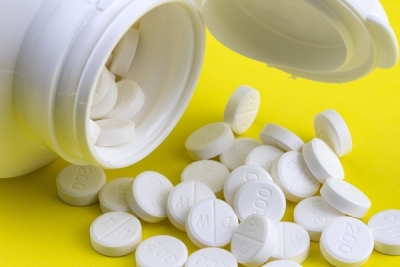Ingesting alcohol can lead to changes in motor coordination, decision-making, and impulse control, increasing the risk of health damage. Continuing consumption even after clear signs of overindulgence can result in severe alcohol intoxication.
What is severe alcohol intoxication?
Severe alcohol intoxication, more popularly known as alcohol overdose, occurs when the concentration of alcohol in the bloodstream is so high that the brain areas that control basic life-support functions (breathing, heart rate, and temperature control) are deregulated. Symptoms of severe alcohol intoxication include mental confusion, difficulty staying awake, vomiting, convulsions, difficulty breathing, slow heart rate, clammy skin and low body temperature, which can lead to permanent brain damage or even death (1).
Who might be at risk?
Anyone who consumes a large amount of alcohol can be at risk for severe alcohol intoxication. This is especially observed among people who tend to engage in Heavy Episodic Drinking (HED), a harmful drinking pattern that is equivalent to ingesting 4 or more drinks for women and 5 or more drinks for men, within a period of up to two hours (2).
It is worth noting that BPE is more frequent among adolescents and young adults, who are populations with a greater chance of intoxication.
→ As the concentration of alcohol in the blood increases, the risks also increase
It is important to note that even after a person has stopped drinking, their blood alcohol concentration (BAC) may still continue to rise a few hours later. This is because it takes time for the alcohol in your stomach and intestines to be fully absorbed and enter your bloodstream.
It is dangerous to assume that an unconscious person will be fine sleeping. A potential danger of alcohol intoxication is choking on your own vomit. Alcohol at very high levels can impede the brain signals that control automatic responses, such as the gag reflex. Without the gag reflex, a person who has drunk to the point of passing out runs the risk of choking on his/her own vomit and dying from asphyxiation, that is, lack of oxygen.
Critical signs and symptoms of alcohol intoxication
- Mental confusion and stupor
- Difficulty staying awake or inability to wake up
- Vomiting
- Seizures
- Slow breathing (less than 8 breaths per minute)
- Irregular breathing (10 seconds or more between breaths)
- Slow heart rate
- Moist skin
- Dull responses, such as no gag reflex
- Extremely low body temperature, bluish skin, or paleness
Ask for help quickly
If you suspect that someone has one or more of the above symptoms, the first step is to seek medical help so that the individual is attended to as soon as possible, avoiding more serious complications.
Don't expect the person to have all the signs. Don't try to play doctor. Cold showers, hot coffee or sweets do not reverse the effects of alcohol intoxication and can even make the situation worse.
What to do while waiting for medical help?
1) Be prepared to provide information:
- The type and amount of alcohol the person drank;
- If there was the use of other drugs;
- Any information you have about the person's health (drug allergies or health problems).
2) Do not leave the drunk person alone, as he is at risk of falling or suffocating. Keep the person on the floor, sitting or partially standing.
3) Help a person who is vomiting. Have her lean forward to avoid gagging. If a person is unconscious or lying down, roll them onto their side with their ear to the ground.
Stay alert to keep your friends and family safe. And remember: you can avoid the risk of an overdose. If you are an adult, outside the zero-alcohol conditions, and have chosen to drink, keep your alcohol intake within the limits of moderate consumption: up to 1 drink per day for women and up to 2 drinks per day for men (3).











